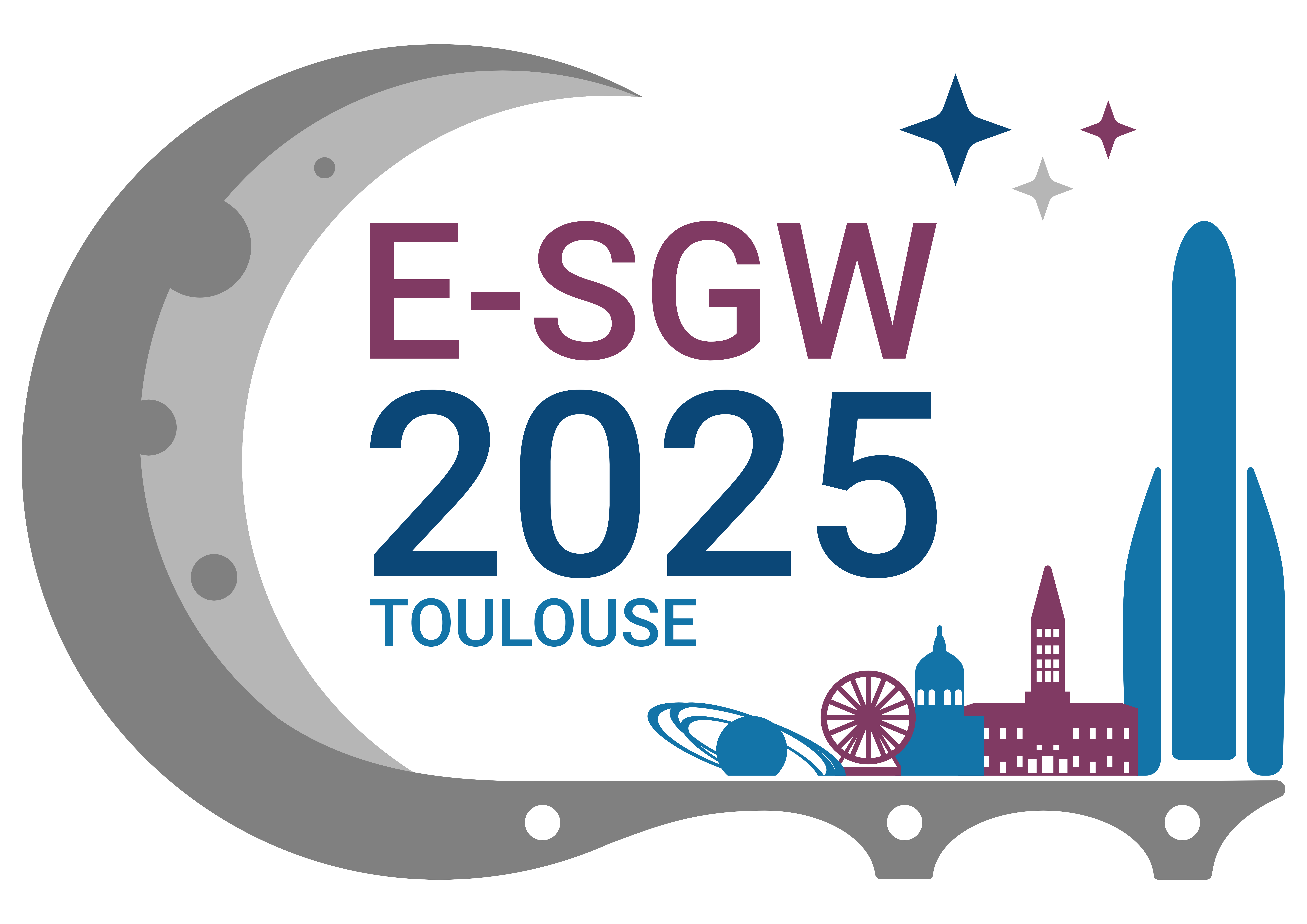Day 0 – Sunday, December 16th 2018
– Optional Pre-Workshop Dinner For Delegates
Monday, 17th December 2018
AM Master of Ceremonies: TBC
08:30 – 09:15 Doors Open, Registration, and Breakfast
09:30 – 10:00 Opening Remarks: SGAC 2018 Welcome – Executive Director, Regional Coordinator & AF-SGW 2018 Manager
10:00 – 10:45 Invited Speakers – Host, Partners, Government… – TBC
11:00 – 11:15 Coffee Break
11:15 – 11:30 Official Workshop Picture
11:30 – 12:15 Invited Speakers – TBC
12:15 – 13:30 Lunch Break
PM Master of Ceremonies: TBC
13:30 – 14:45 Working Group Session
- WG 1: Space Law & Policy
- WG 2: Space Business & Entrepreneurship
- WG 3: STEAM & Outreach
- WG 4: The Sustainable Development Goals (SDGs) & Capacity-Building
14:45 – 15:00 Coffee Break
15:00 – 15:45 Keynotes – TBC
16:00 – 17:00 Working Group Sessions
- WG 1: Space Law & Policy
- WG 2: Space Business & Entrepreneurship
- WG 3: STEAM & Outreach
- WG 4: SDGs & Capacity-Building
17:00 – 17:15 Closure Day 1
20:00 – 22:00 AF-SGW18 Opening Dinner & International Cultural Night
Tuesday, 18th December 2018
AM Master of Ceremonies: TBC
08:30 – 09:00 Doors Open and Breakfast
09:00 – 09:30 SGAC Day 2 Welcome
09:30 – 10:30 Invited Speakers – TBC
10:45 – 11:00 Coffee Break
11:00 – 12:30 Working Group Sessions
- WG 1: Space Law & Policy
- WG 2: Space Business & Entrepreneurship
- WG 3: STEAM & Outreach
- WG 4: The Sustainable Development Goals (SDGs) & Capacity-Building
12:30 – 13:45 Lunch
PM Master of Ceremonies: TBC
14:00 – 15:00 High-Level Panel – Business, space agencies, academia
15:00 – 15:15 Coffee Break
15:15 – 16:30 Working Group Sessions
- WG 1: Space Law & Policy
- WG 2: Space Business & Entrepreneurship
- WG 3: STEAM & Outreach
- WG 4: The Sustainable Development Goals (SDGs) & Capacity-Building
16:30 – 16:45 Coffee Break
17:00 – 18:00 Working Group Final Presentation
18:00 – 18:30 Closing Remarks
20:00 – 22:00 AF-SGW18 Closing Gala Dinner & Space Night
Confirmed Speakers, Moderators, and Panelists
The African Space Generation Workshop is pleased to have an incredible line-up of both local and international speakers. These will be announced soon. This page will be updated with more details as they become available, so check regularly.
Listed in ascending alphabetical order by surname
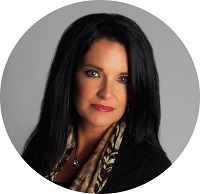
Allyson Reneau
Entrepreneur, Harvard Graduate & Gymnastics Coach
Allyson Reneau is the mother of 11 children, successful business owner, and gymnastics coach of Olympic hopefuls. In pursuit of a lifelong dream, she enrolled at Harvard University, commuted 4000 miles weekly for 3 years, and graduated in May 2016 with a Masters in International Relations. While at Harvard she also attended Juilliard in New York City studying piano performance.
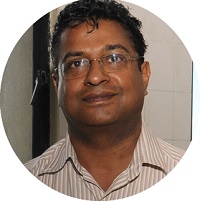
Dr Radhakhrishna Somanah (Dinesh)
Director General Universite Des Mascareignes, Physicist, Commander of the Star and Key of the Indian Ocean
Dr Radhakhrishna Somanah is a father of twins (one boy and one girl) of 6 years old. He is a researcher in Physics with more emphasis in Astrophysics. He is one of the pioneers of professional astronomy and radioastronomy in Mauritius and Africa. He currently holds academic qualifications in BSc Hons Physics, MSc Theoretical Physics, PhD Physics with specialization in Astrophysics (Assessed by Univ of Oxford and Manchester, UK).
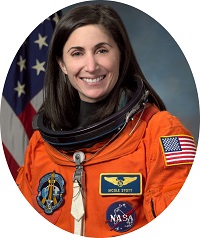
Nicole Stott
NASA Astronaut, American Engineer & Artist
Nicole Stott is a veteran of 2 spaceflights and 104 days living and working in space on both the Space Shuttle and the International Space Station (ISS). Highlights of her spaceflight missions include 3 Space Shuttle flights (STS128, STS129, STS133), 2 ISS Expeditions (20 & 21), 1 spacewalk, flying the robotic arm for the first track and capture of the free flying Japanese HTV cargo vehicle, a wide variety of science and research activities, installation and first run on the C.O.L.B.E.R.T. treadmill, and ISS maintenance. She was the last ISS crewmember to return to Earth on a Space Shuttle.
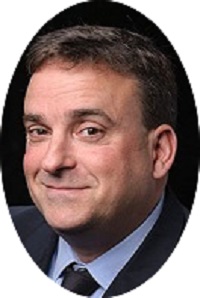
Chris Stott
Chairman & CEO, ManSat LLC US
Chris Stott founded ManSat in 2000 and was instrumental in the formation of the SpaceIsle initiative, which established the Isle of Man as a major domicile and corporate service provider to the commercial space sector. But for Chris, doing business and doing good for the next generation are inextricably linked. He set up the ManSat Fellowship to give students from the Isle an opportunity to fully explore the industry he loves. Every year since its founding in 2000, the Fellowship has helped groups of students attend NASA’s United Space School, exposing them to the industry and its many opportunities and giving them a chance to meet and work with other gifted students from all around the world.
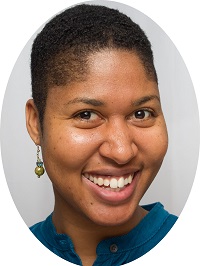
Professor Danielle Wood
Director of the Space Enabled Research Group
Media Lab, Massachusetts Institute of Technology
Professor Danielle Wood joins the Media Lab as assistant professor in the Program in Media Arts and Sciences as of January 2018. Within the Media Lab, Prof. Wood leads the Space Enabled Research Group which seeks to advance justice in earth’s complex systems using designs enabled by space. Prof. Wood is a scholar of societal development with a background that includes satellite design, earth science applications, systems engineering, and technology policy for the US and emerging nations.


